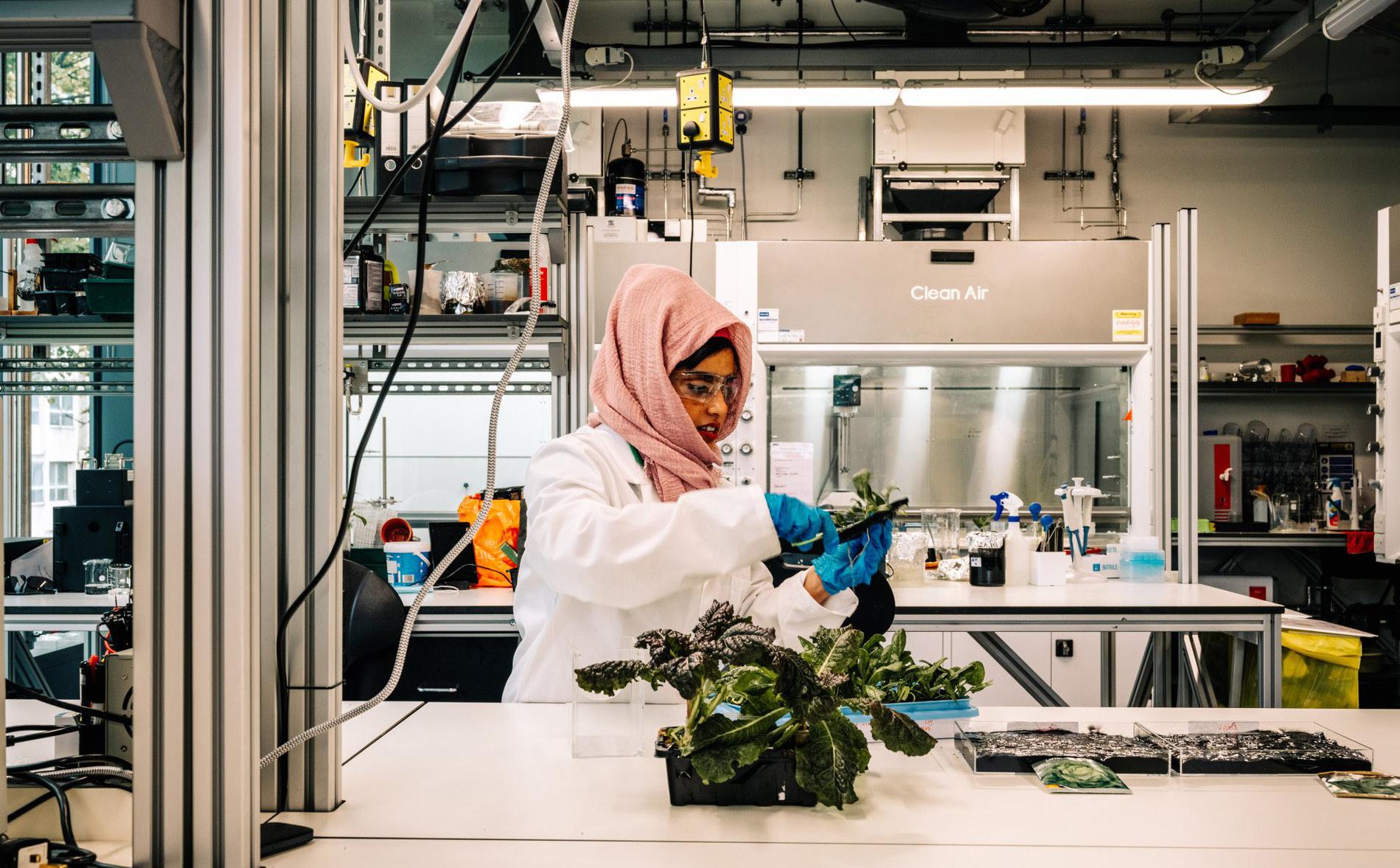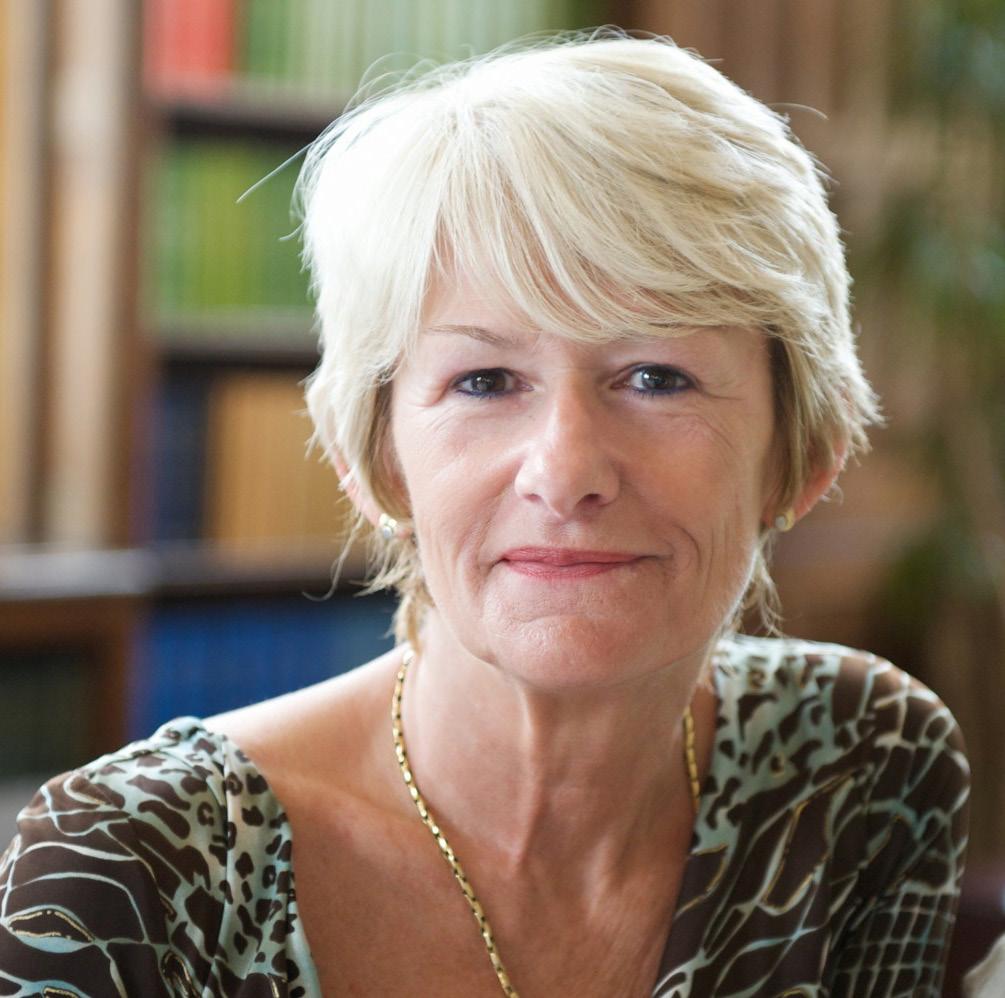What will Greater Manchester be like in 2038? There is a sense of ‘can we do it’? And my answer is, ‘better we aim higher and miss slightly than be unambitious’.
minds to come together and come up with solutions. Now we haven’t had a meteor, but we have had a pandemic.
I think having that commitment is so important to the people who live here and the people who come to study and work here.
There’s some truth in that, when under pressure, we are incredibly creative.
We have 40,000 students at The University of Manchester. Why do they come to Manchester? Well, obviously there are lots of reasons, but I think the commitment to the environment is a really important one.
PROFESSOR DAME NANCY ROTHWELL
President and Vice-Chancellor of The University of Manchester, and a member of the Greater Manchester Local Enterprise Partnership board In 2038, I expect to see a green city, transformed through advanced materials, but most importantly, a magnet that attracts the greatest talent and is driven by innovation. If we look back at our history, we’re a city and a region that’s been built on innovation, on revolution, on doing things differently. That will depend on skilled people, and that means skilled people across the whole region, not just in the city centre, but in the towns around. It means both skills for the people who are born and live here, but also attracting skilled people - to be an international magnet for the smartest people to come, where ideas can really flourish. Driving a green agenda is important both in terms of making the place better to live but also from our surroundings and our leisure time, as well as our work. Manchester has commited to 2038 as the date for achieving carbon neutrality whereas most others are aiming for 2050. Manchester just likes to be a bit more ambitious than others.
2
And I think that as we come out of this pandemic, despite all the difficulties and challenges, that we will all start to think a little bit differently about the future.
What we need to be better at, and I count ‘we’ as all universities, is joining up with other sectors to make sure our discoveries get translated into real life applications that are of benefit to people. Discovering something is brilliant; it’s the beginning and it’s how you transform things. But then you need to turn it into something that’s useful, that can be applied. One example might be a plane that has a net zero carbon footprint. It is entirely possible to have one with very light components, with a battery that captures wind power or solar power, that’s perhaps catapulted. These things are not dreams anymore - they are within the realms of possibility. But it’s going to take universities working with start-up companies, large companies, small companies, British companies, global companies. And I think Manchester has a shot at doing that. If I can I’ll cite Andre Geim, who, of course, is often called the ‘father of graphene’. Andre commented that humans are the most inventive and creative when under pressure. He said that what we need is a meteor heading towards Earth that will cause all the creative
TIM NEWNS
Chief Executive of MIDAS, the inward investment agency for Greater Manchester What will the world be like in 2038? I think that Greater Manchester will be a global centre for innovation, and Advanced Materials is at the absolute heart of that. The city-region is developing a programme called Innovation Greater Manchester, which will underpin much of our economic growth strategy, focussed on translating innovation from our current centres of excellence such as universities and institutions, in to new innovation districts in our town centres and outlying business and industrial parks such as Gateway North in Bury and Rochdale.






